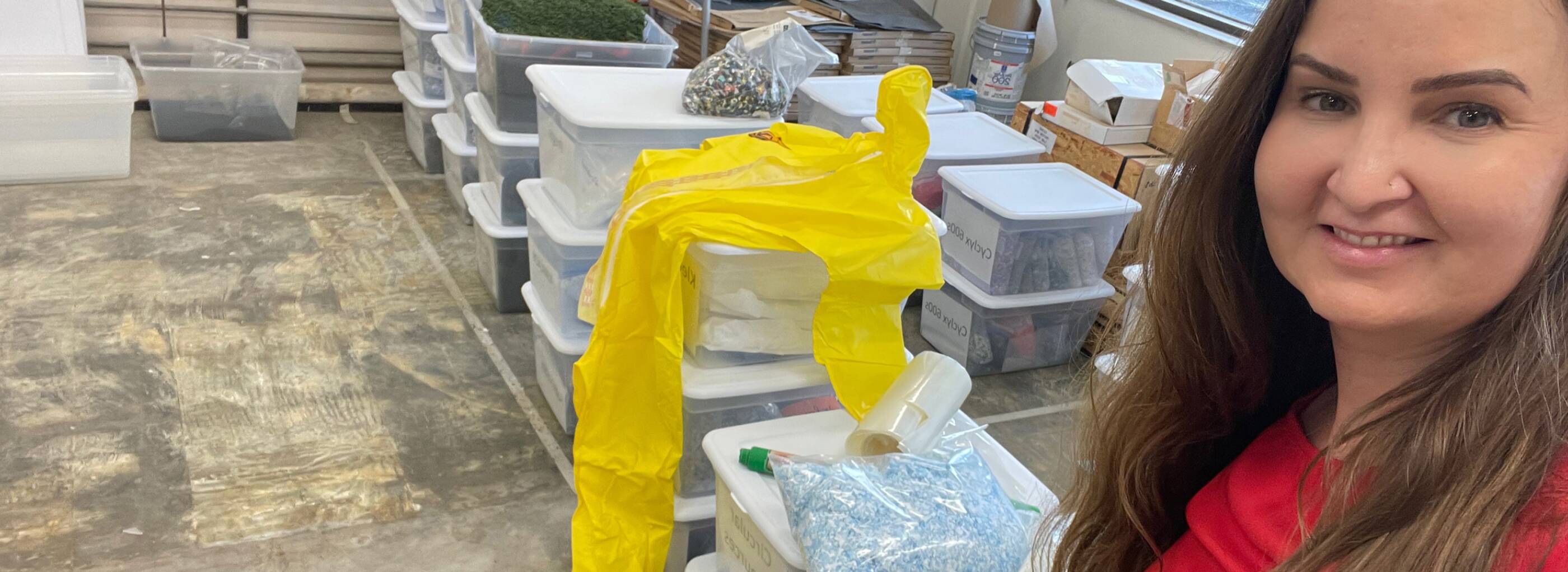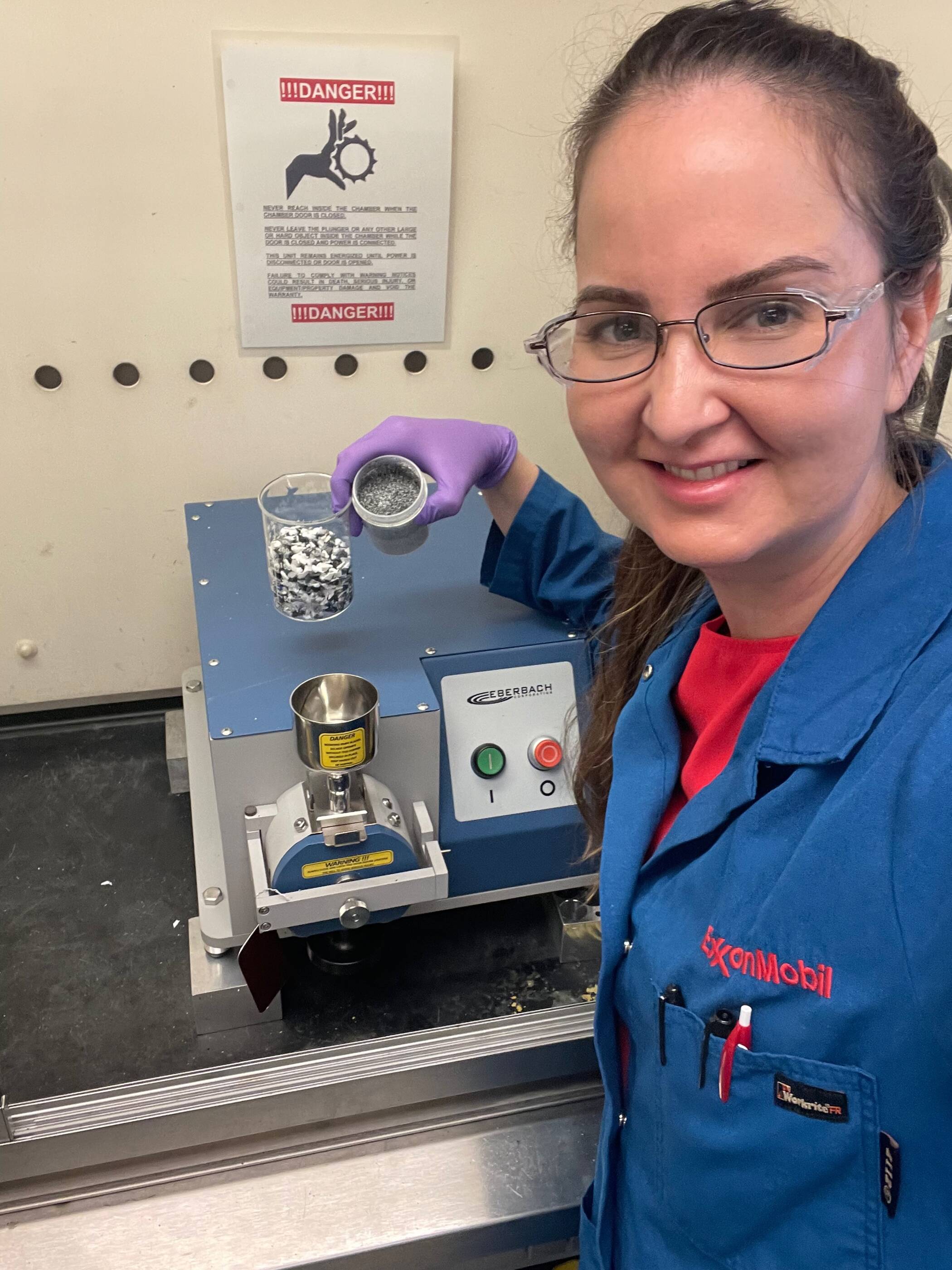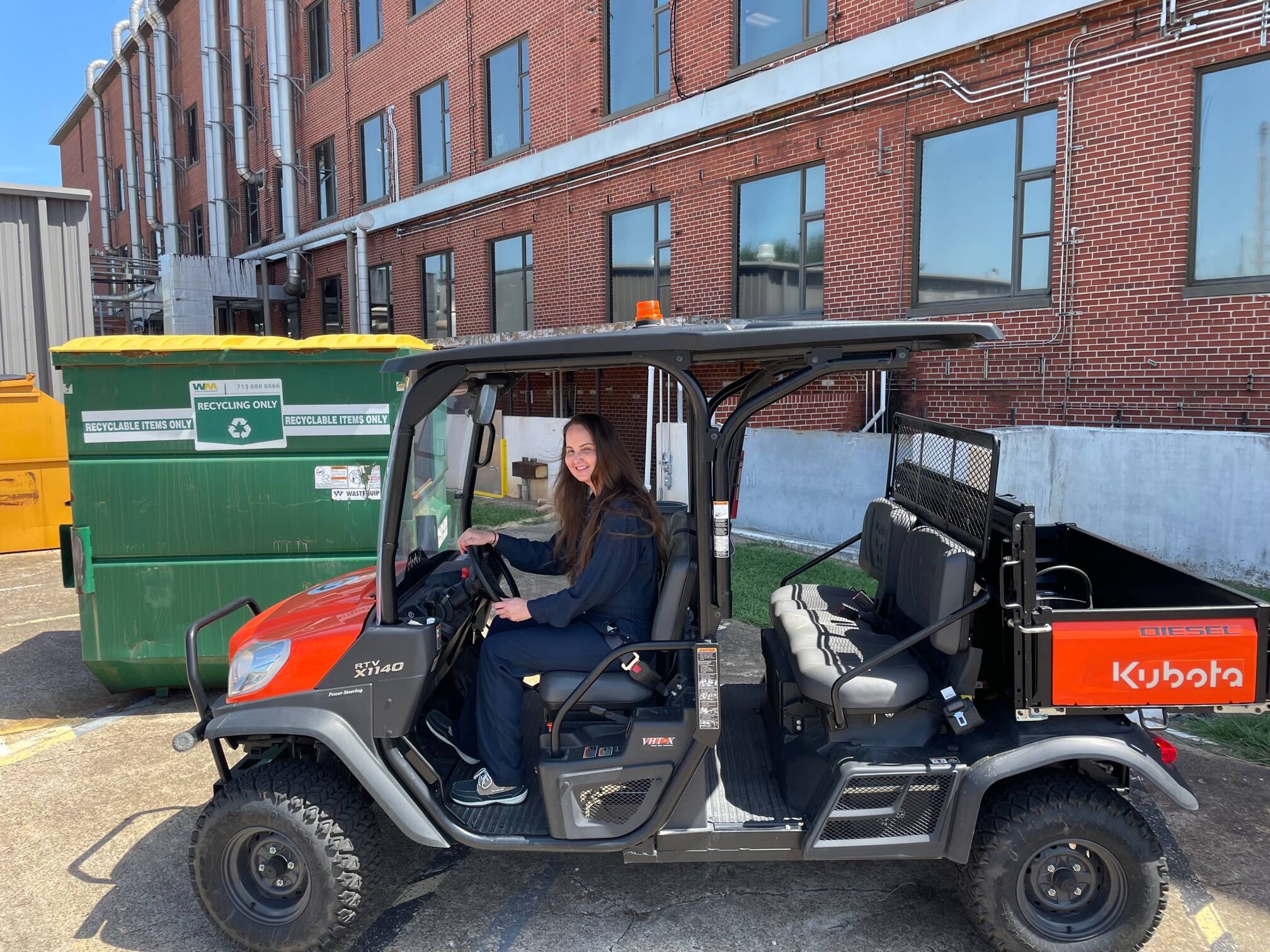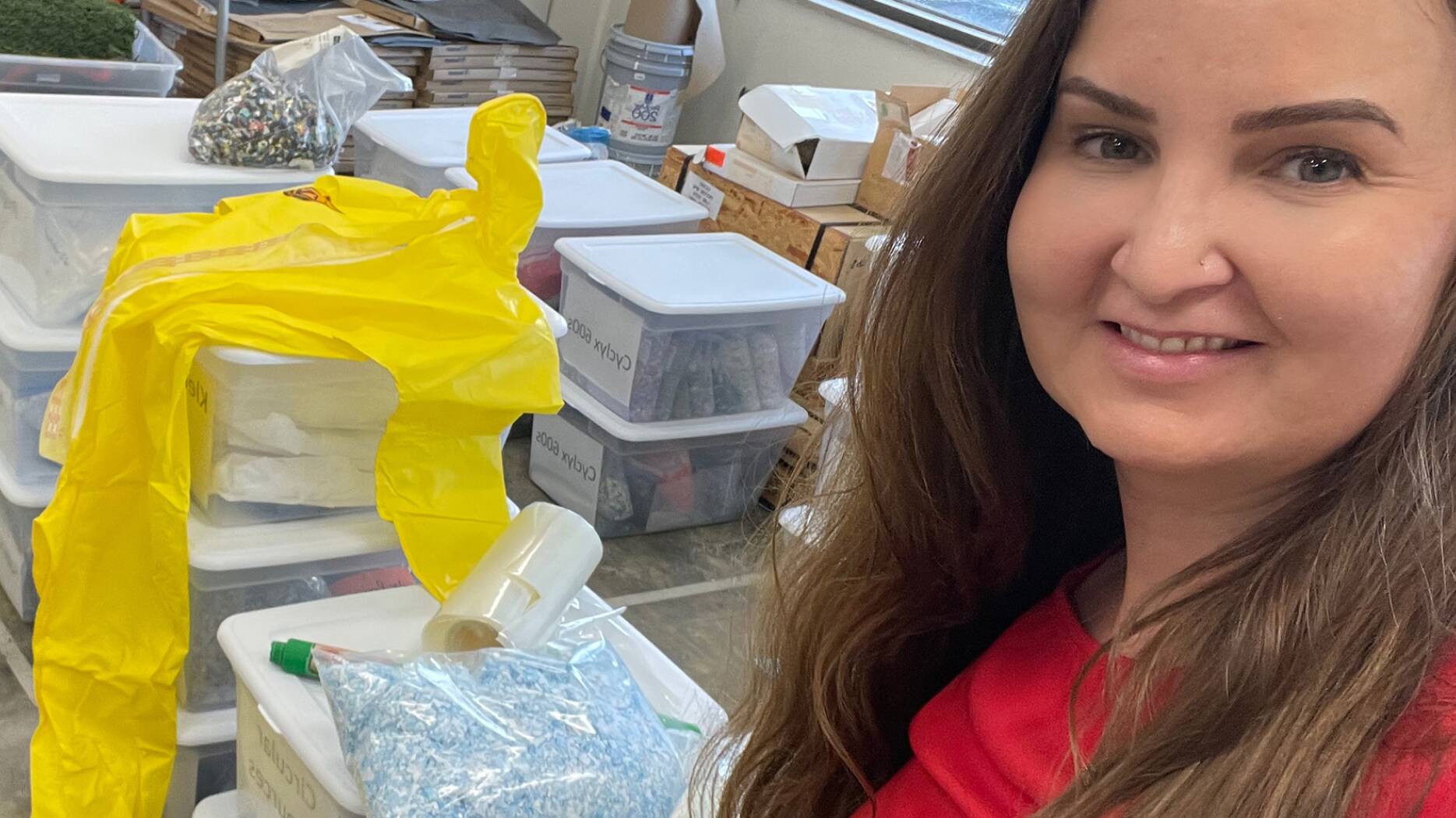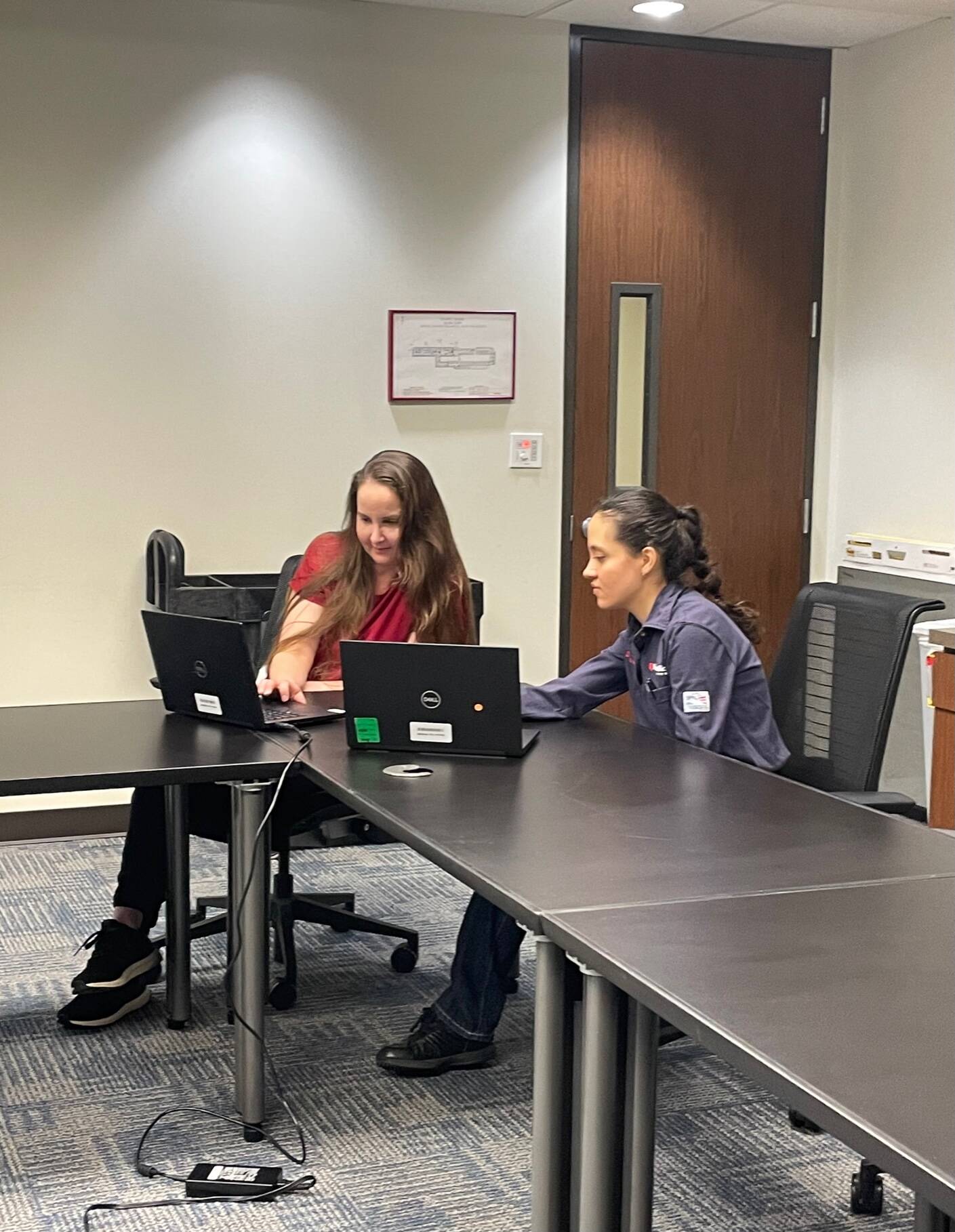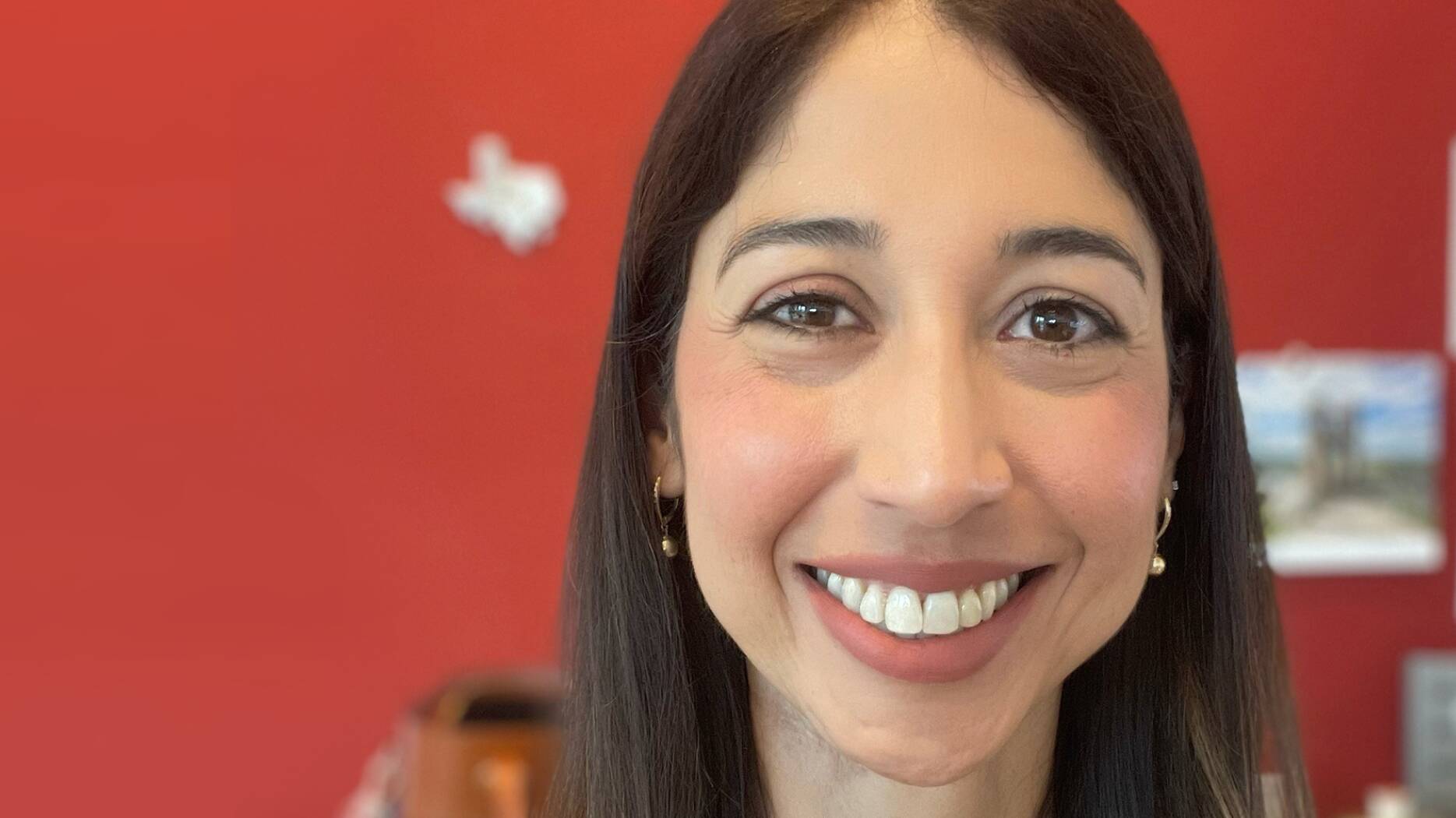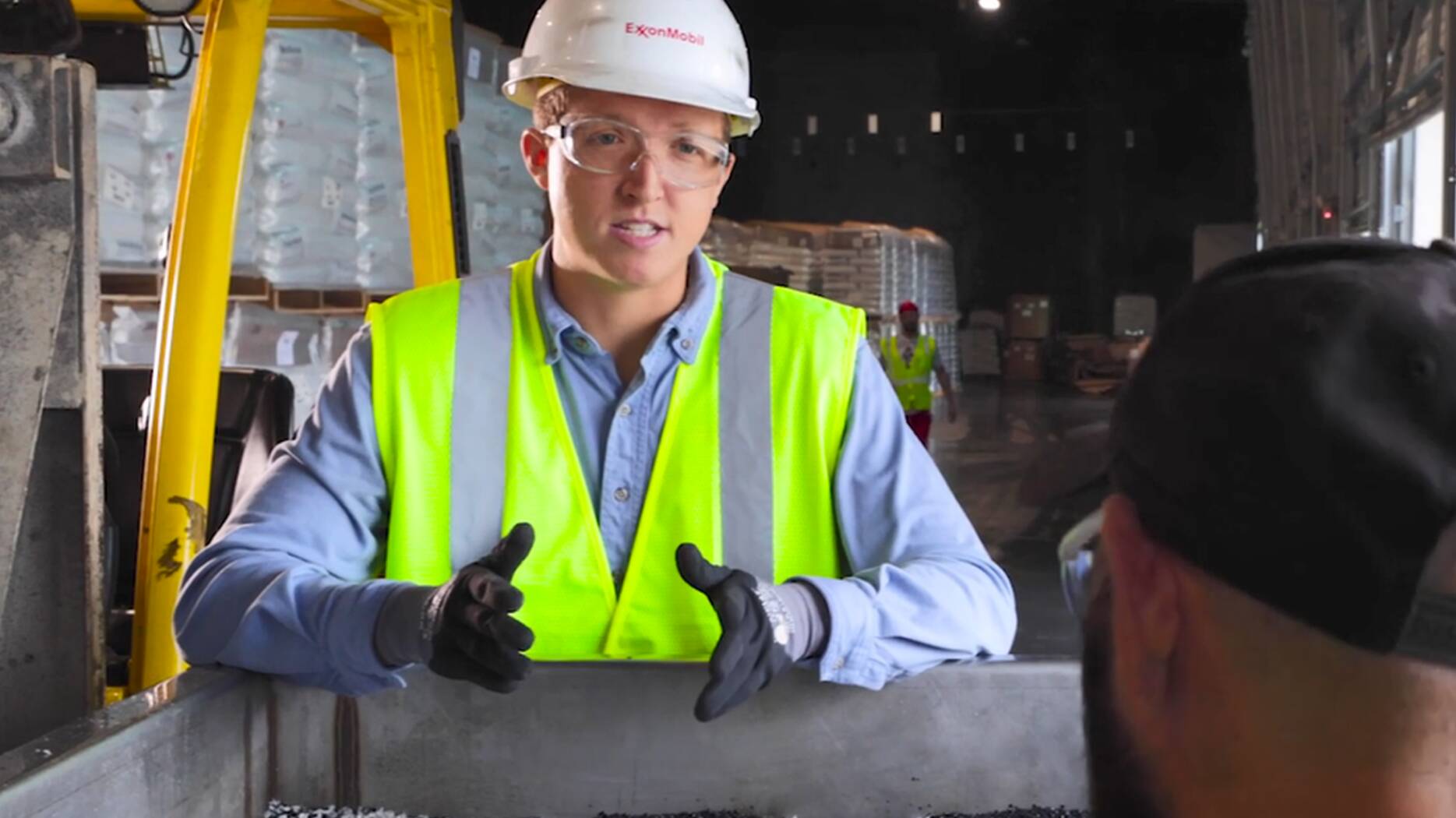selected item
Unlocking the potential of advanced recycling: Stephanie Westbrook
When I describe my work at ExxonMobil, I often jokingly refer to myself as the “trash collector.” Essentially, I receive waste plastics from all over the world and analyze our ability to process them through our advanced recycling technology.
Most of my time is invested in a process we call “elemental mapping” – where I prepare every material we receive for extensive elemental analysis and compile a rapidly expanding database of more than 700 different plastic waste samples. My work is directly tied to our company’s deployment of advanced recycling, and it’s exciting to play a role in enabling society to expand the types of plastic products that it recycles.
There are so many essential items in our everyday lives that are made from plastic. Think of a sterile syringe at your doctor’s office, the dashboard in your car, the bag that holds the shredded cheese for your baked potato, and even the disposable face masks we’ve all grown accustomed to seeing in daily life. These are all made of plastic. They are lightweight and inexpensive to produce. They protect against contamination and decrease food waste. But today, many plastic items are not recycled, at least not yet. And that’s what we’re working on.
As we conduct experiments with different types of plastic waste – from motor oil bottles to artificial turf – I’m analyzing the products’ unique chemical properties and determining whether our current technology can process it. Having access to so many plastic samples, with every different chemical and physical composition imaginable, makes my job both challenging and fun. And as we continue testing, our database grows, our specification windows expand, and the scope of what we know we can recycle extends. It’s exciting to watch these improvements moving so quickly.
The most important thing I want people to know is that advanced recycling is a new field, so there’s still a lot to learn. ExxonMobil’s ability to bring innovation to scale is our most obvious advantage in advanced recycling. We have the people, the resources and the patience to figure out what the right questions are and how we can answer them, and to make improvements that will continually increase efficiency and enhance the circularity of plastics.
In the next couple of months, I’ll get the opportunity to relocate to ExxonMobil’s technology center near Brussels, Belgium. There, I’ll have the chance to work with new instrumentation, learn more about recycling in Europe, and help bring the technology and processes we’ve implemented here in the U.S. to another part of the world.
It’s really exciting to get to work in a new field and play a part in such an aggressive pursuit of knowledge. Since we started our facility in Baytown, Texas, about a year ago, we’ve recycled more than 11 million pounds of used plastics. That’s a lot of progress in a short time – and that’s just the beginning.
I think every scientist wants to see their discoveries have a positive impact. I’m thankful that I’m getting to see my work have a real-world impact right now.
Explore more
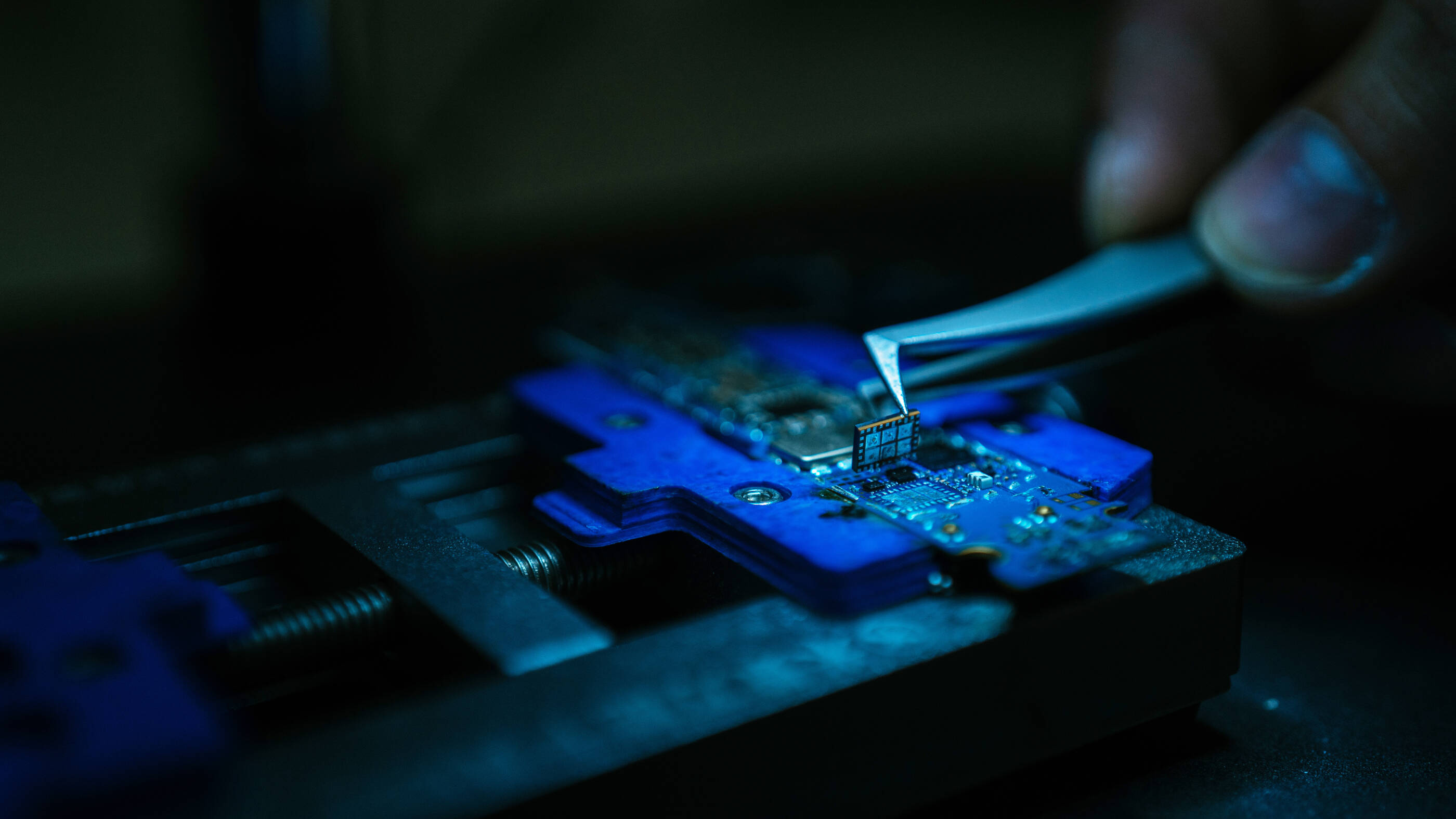
ExxonMobil’s high-purity solvent to support next generation of tech manufacturing
3 min read
•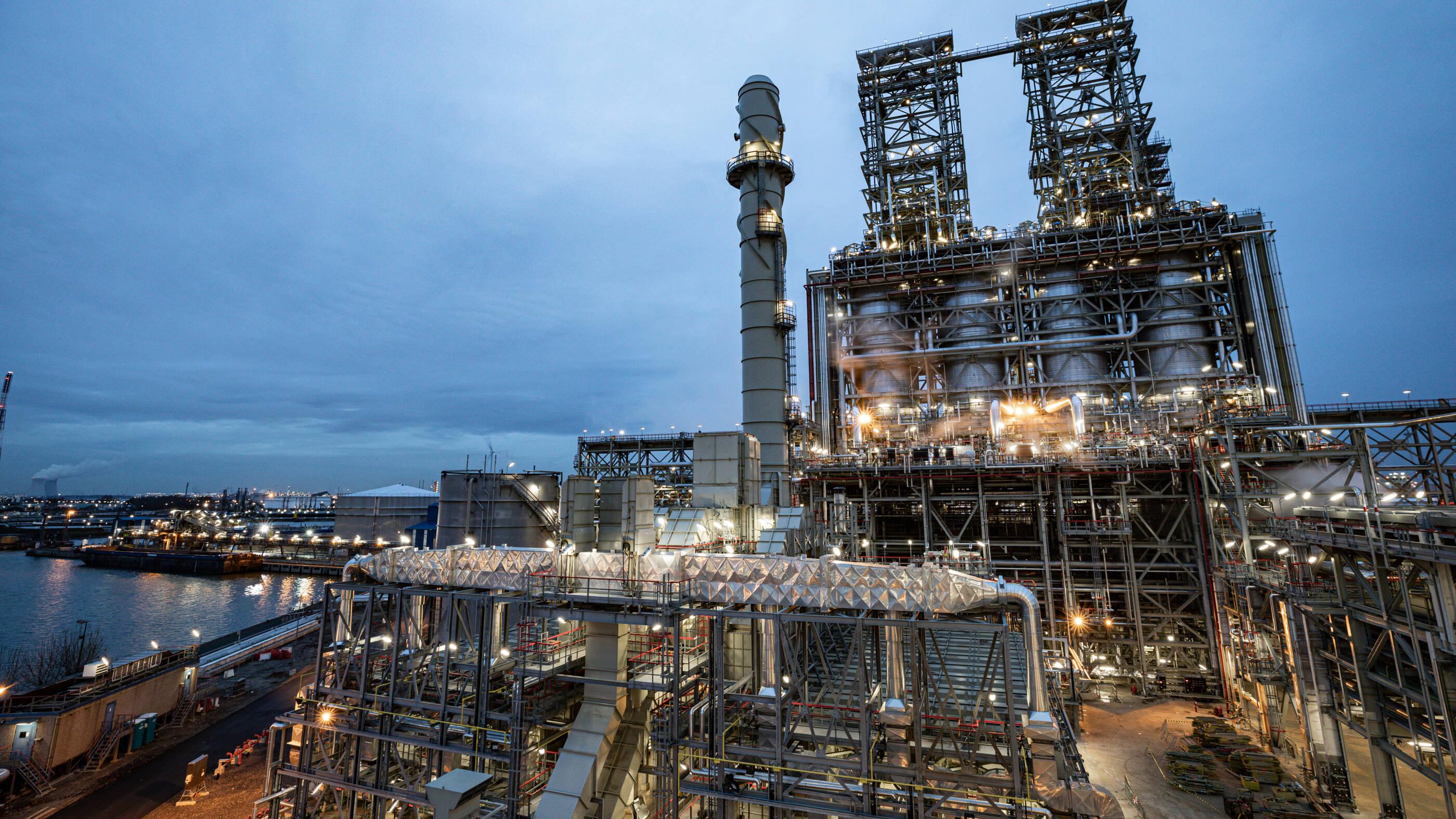
The policy keys to unlocking a European industrial comeback
2 min read
•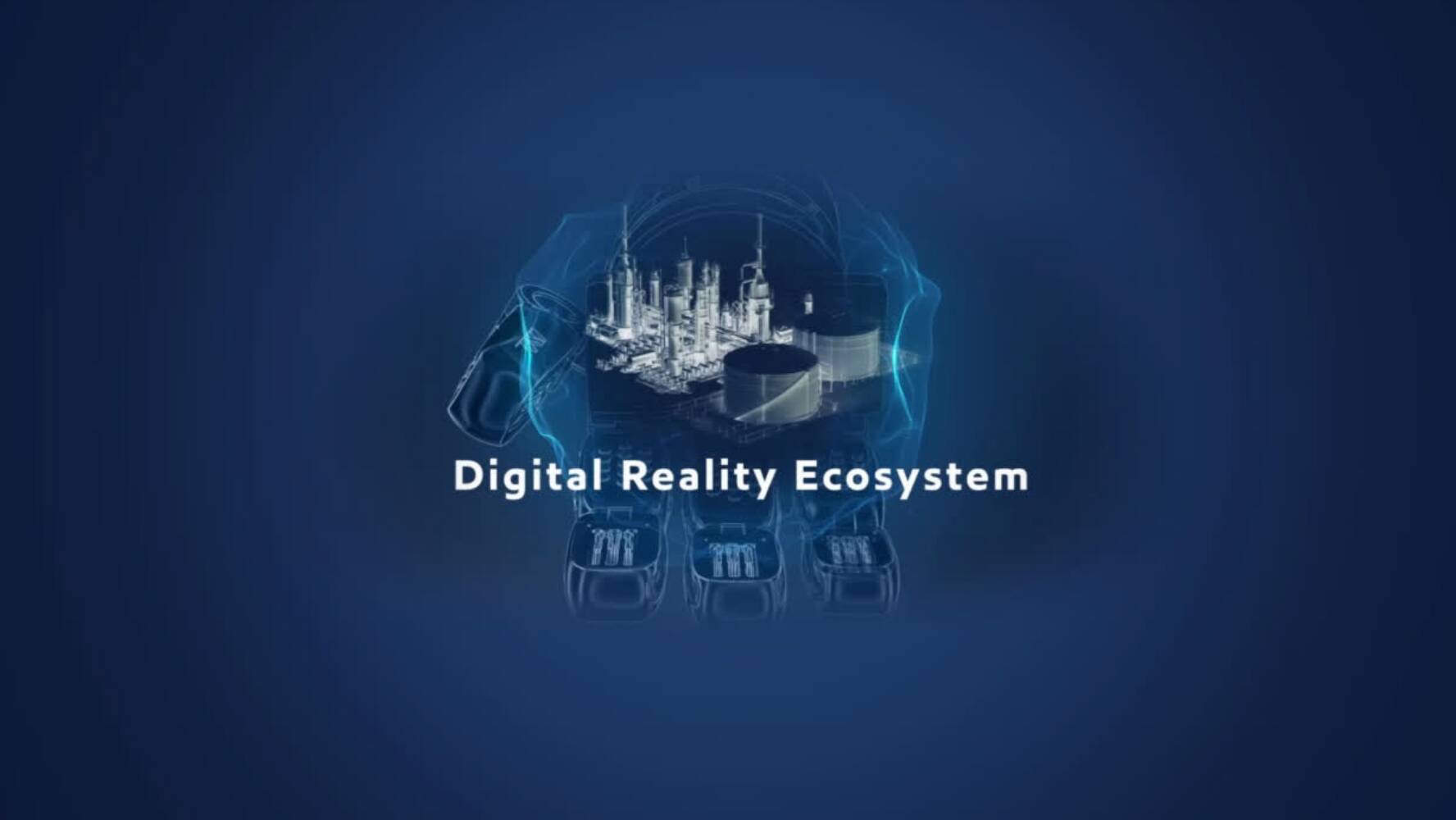
Turning turnarounds into a competitive advantage
3 min read
•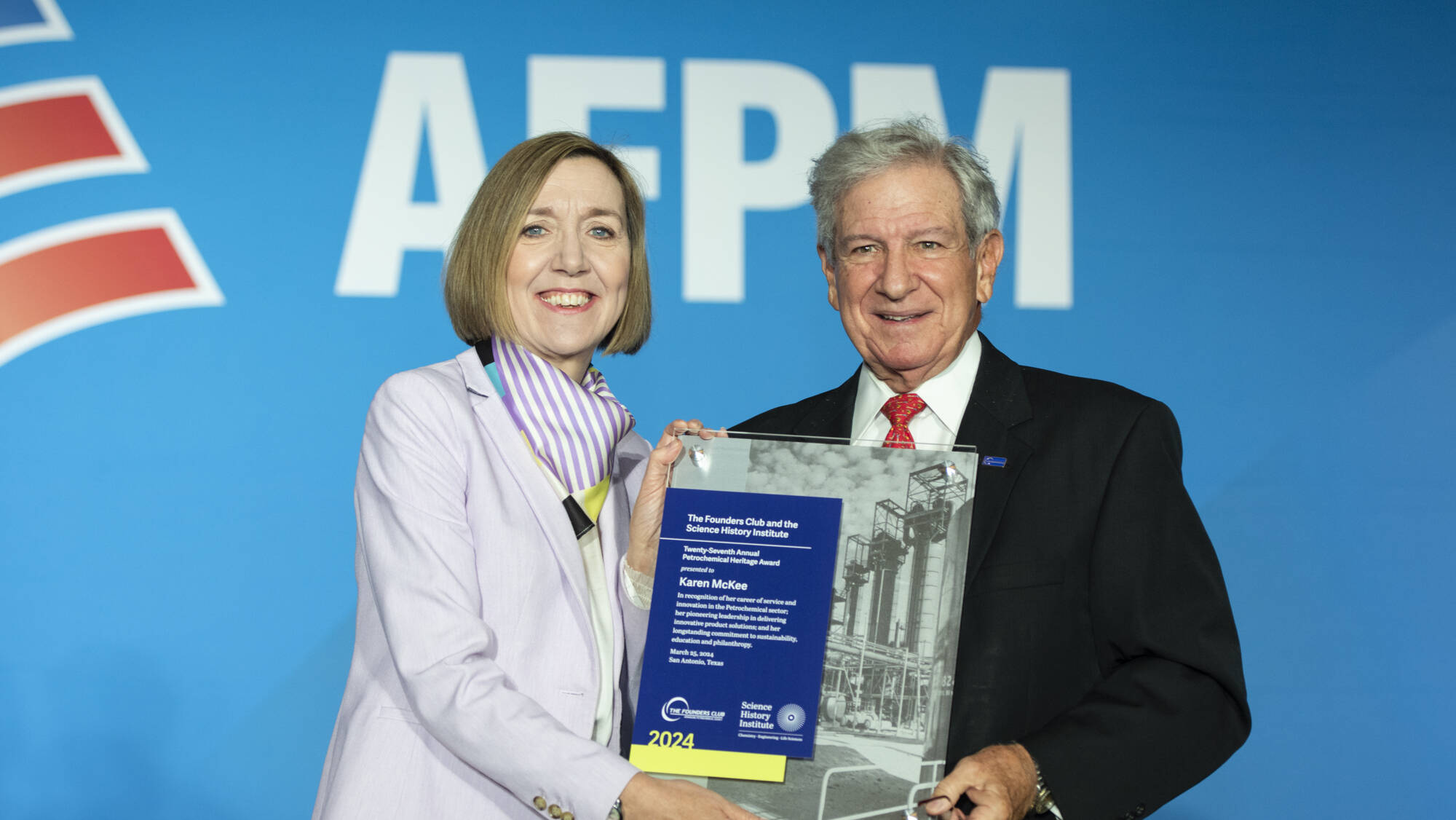
Karen McKee wins prestigious industry award
7 min read
•